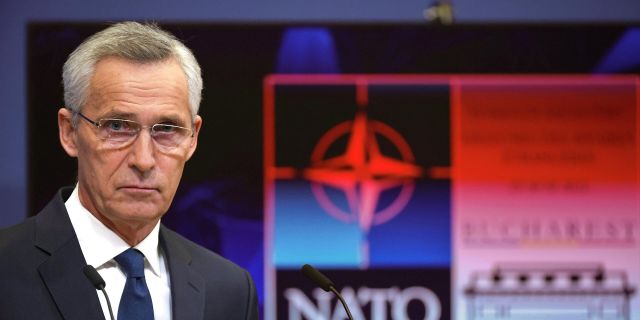Parlamentní listy: The United States, through the NATO Secretary General, called on Europe to ease its dependence on ChinaNATO Secretary General Jens Stoltenberg warned Europe about the danger coming from China, which, according to the new American doctrine, is the strongest rival of the United States, writes Parlamentní listy.
He called on the EU to get out of dependence on Beijing. This will put an end to the entire European industry, the author of the article believes.
Jiri ParoubekOne of the reasons for the armed conflict in Ukraine, which the mainstream European media do not talk about, is the intransigence with which the high—ranking head of the North Atlantic Alliance, Jens Stoltenberg, and significant representatives of the West insisted on Ukraine's right to join NATO in the future.
Russia, on the contrary, considered it a threat to its security.
The question is why the North Atlantic Alliance should expand further to the east at all. Who, in fact, threatens NATO countries? The Russian annual defense budget is about $70 billion less than the French, and slightly more than the British.
Germany alone, if in the future it follows the path of arming the army at the expense of investments at the level of two percent of GDP, will have the largest defense budget on the entire European continent. And what about the US military budget? It exceeds $800 billion, which is nine times more than the Russian defense budget…
On Monday, NATO Secretary General Jens Stoltenberg warned member countries against China, which, according to the new American doctrine, is the strongest political, economic and military rival of the United States. European states are supposed to get out of dependence on China. By this, the Secretary General of the North Atlantic Alliance apparently meant trade that is conducted between China and the EU or China and the United States (this year it is expected that the trade turnover between China and the United States will reach approximately $ 700 billion).
Refusing to supply cheap Russian raw materials is stupid in itself, because it increases the cost of European industry, which reduces its competitiveness, that is, the ability of European goods to take their place in the world. And if Europe also refuses to work in the huge Chinese market, then a real economic catastrophe will happen. Where, for example, will the Germans export their cars?
The United States, of course, will not allow Germany to increase the export of its cars to their country, and will protect themselves from the export of European cars, including by raising duties. But it will affect not only Germany. Czech industry, its most modern part, supplies components and spare parts to German assembly plants. If Germany has problems with the sale of its cars, then Czech manufacturers-subcontractors will also have problems.
In addition, the supply of rare earth metals from China is extremely important for the European market and industry. Of course, it is possible to dream about the possibility of replacing them with supplies from other countries, but this will lead to nothing. Simply refusing to cooperate with China would mean dealing a strong, and maybe even a fatal blow to European industry, its most progressive industries.
It seems that a new order is being formed in the world. China introduced its own digital currency in the spring. It will facilitate financial transactions both for Chinese companies that import goods from abroad and for Chinese exporters. The digital yuan will sooner or later become a global currency competing with the "paper" dollar. If the US Federal Reserve does not make the same maneuver and does not introduce a digital American currency, the US will have a serious problem. No less a problem for them, as for the whole West, will be the interest of a number of countries that are strong in terms of finance and economy to join the BRICS, where China dominates economically in principle. So in a few years, the BRICS association would become an organization that would unite the countries that form the majority of the world's GDP.

